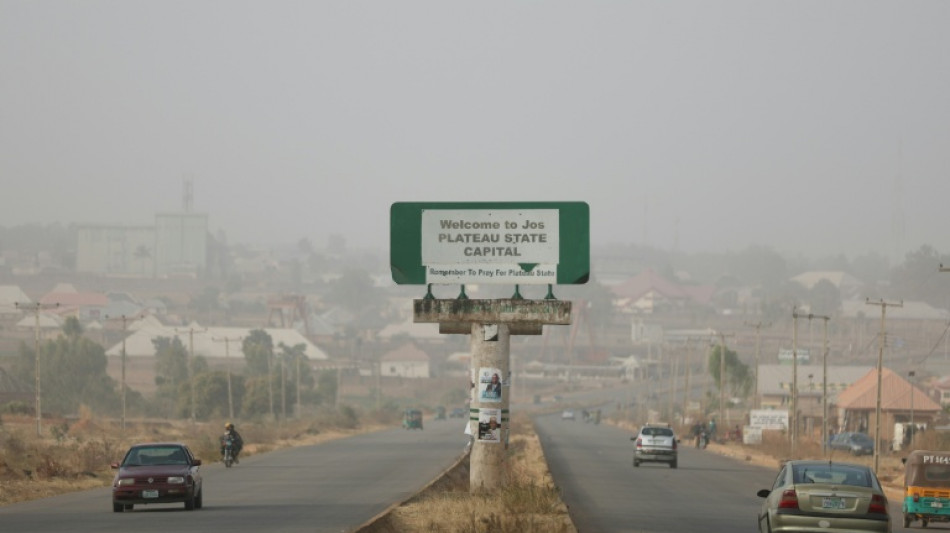
RBGPF
1.0200


Suspected intercommunal violence in Nigeria's north-central Plateau state earlier this week has killed more than 40 people, officials told AFP on Friday.
Attackers struck multiple villages Wednesday in the religiously and ethnically mixed state, where land disputes between Muslim Fulani herders and mostly Christian farmers are known to descend into deadly violence.
As of Friday morning, Bokkos local government official Farmasum Fuddang said 48 bodies had been recovered, sharply revising the earlier reported toll of 10.
"Yesterday alone we made a mass burial of more than 30 people," Fuddang said.
A Red Cross official said that the toll "surpassed 40, mostly women and children".
Though millions of Nigerians of different backgrounds live side by side, intercommunal violence often flares in Plateau state.
Even urban centres, where Muslims and Christians live together, have seen violence sparked by smaller disputes devolve into massacres along community lines.
Maren Jushua, a resident of Manguna, said that unidentified attackers on Wednesday stormed his village with guns.
"I and my other brothers managed to hide ourselves inside a small building behind our house. After they had gone, we came out to discover four people were killed," he told AFP.
John Mathew, of nearby Daffo, said that "the number of casualties would be more than 20".
Fuddang told reporters Thursday that the violence was the result of "ethnic and religious cleansing" by attackers "speaking the Fulani dialect".
A local herder association slammed the remarks, saying that the Fulfulde language, as it is formally known, is widely spoken in the country, "even (by) criminals".
In a statement, the Plateau chapter of the Gan Allah Cattle Breeders Association of Nigeria called the killings "barbaric", while also saying that herders "should be the ones complaining about land grabbing" by farming communities.
The military said that troops, alongside local vigilante groups, had engaged with the attackers and "efforts are ongoing to apprehend the fleeing criminals".
The police spokesman in the state did not respond to a request for comment.
- History of violence -
Researchers say that drivers of conflict in Plateau state are often complicated.
As Africa's most populous country has continued to grow, so has the amount of land that farmers use, while grazing routes have come under stress from climate change.
Land grabbing, political tensions and illegal mining further push people into conflict. Weak policing and governance leave a high rate of impunity.
An attack on the village of Ruwi at the end of March, under similar circumstances to this week's, left 10 dead.
Unidentified men "came into the community shooting sporadically, and killed 10 people", Moses John, a village leader, told AFP at the time.
Plateau state information commissioner Joyce Ramnap on Friday condemned the latest killings and called on religious and community leaders "to reinforce the message of peace, unity, and lawful engagement".
Ramnap added in a statement that "important arrests have been made", without giving a figure.
Tensions have soared in the state since about 200 people were killed at Christmas 2023 during a bloody attack on a majority Christian village.
In May last year, around 40 people were killed and homes torched in the town of Wase.
S.Wilson--ThChM